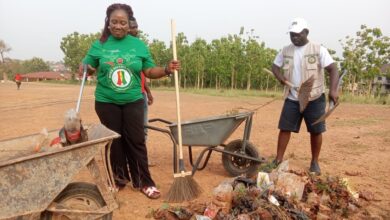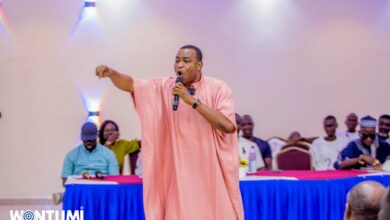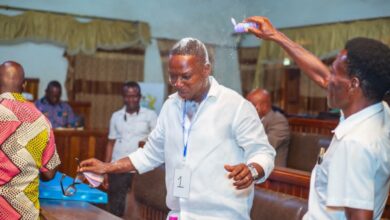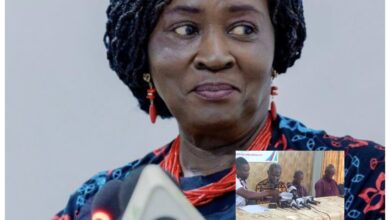Former PNP Presidential Candidate Accuses Mahama of Targeting Chief Justice, Runs to Asantehene
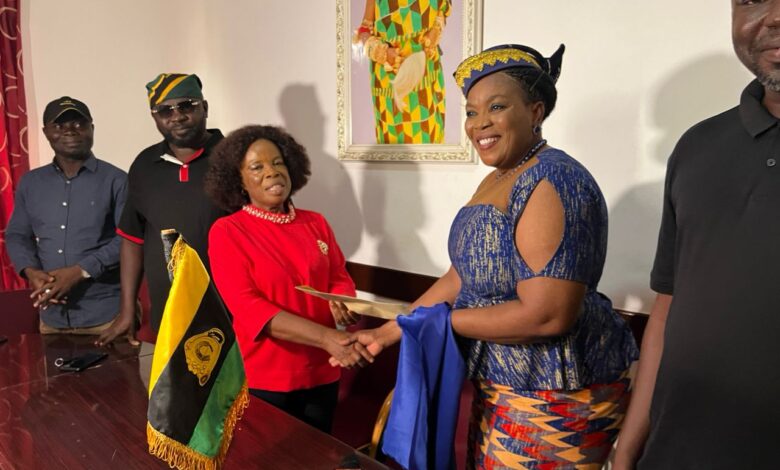
The 2024 presidential candidate of the People’s National Party (PNP), Janet Asana Nabla, has petitioned the Asantehene, Otumfuo Osei Tutu II, to intervene in what she described as ongoing political harassment and institutional intimidation of Ghana’s Chief Justice.
Speaking to journalists at the Manhyia Palace after presenting her petition — which was received by Madam Monica, an office assistant to the Chief of Staff at the Palace — Madam Nabla expressed grave concern about the treatment being meted out to the Chief Justice under the current political climate.
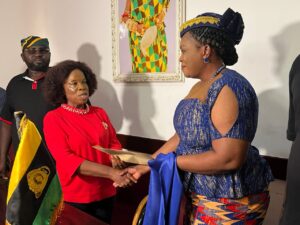
According to her, the ordeal facing the head of the judiciary is not only a personal attack but a broader assault on Ghanaian women in public office.
“We are alarmed by the way the Chief Justice has been treated. She has been subjected to dehumanizing procedures, denied emotional support during investigations, and sidelined by the very justice system she leads,” Nabla stated emotionally. “This is not just about her. It’s about how women are being targeted and silenced under the guise of investigations.”
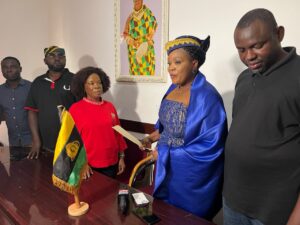
Madam Nabla, who is also a former General Secretary of the People’s National Convention (PNC), described the situation as a dangerous precedent where the judiciary risks becoming subservient to partisan interests.
“When a political party comes into office and the courts begin to act like an extension of that party, it means democracy is in trouble. The courts are supposed to serve the people, not political agendas,” she noted.
She accused the opposition National Democratic Congress (NDC) led by former President John Dramani Mahama of abusing institutional power to suppress dissent and control state institutions.
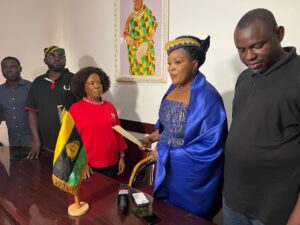
“President Mahama controls the Executive. He has influence over the Legislature. Now he wants the Judiciary too? Where then are the checks and balances?” she questioned. “This coordinated attempt to force out the Chief Justice is part of a bigger scheme.”
In a sharp critique of the government’s current posture, Madam Nabla took issue with the announcement of a National Thanksgiving Service.
“You can’t be vindictive and punish your perceived enemies — whether they are guilty or not — then turn around and say you are thanking God. This is not a time for thanksgiving. It’s a time for repentance,” she stressed.
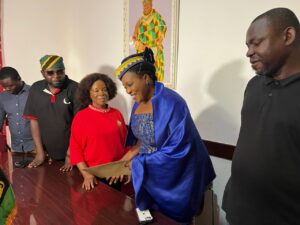
She added that the public perception that the Chief Justice is unpopular is being manufactured and manipulated through orchestrated media commentary.
“The panel discussions you saw with four people attacking her and only one defending her — that was not genuine. It was staged to tarnish her image and make Ghanaians think she is not supported. But Ghanaians know the truth. Many people support her and want her to continue her work.”
Madam Nabla also addressed critics who questioned her silence during the removal of former Electoral Commission Chairperson, Charlotte Osei. She insisted she was actively involved in defending Osei and rejected any claims of selective advocacy.
“At the time Charlotte Osei was sacked, I was the National Women’s Organiser of the PNC. We formed the Coalition of National Women Organisers of Ghana (CONWOG), which included Otiko Afisa Djaba. Even though it was her party in power, she joined us. We petitioned President Akufo-Addo. The records are there in the media.”
She emphasized that her advocacy has always been based on principles, not party loyalty.
“We do not fight for women based on political affiliation. Abuse is abuse — whether you are in the NPP or NDC. When they are targeting women, they don’t ask which party you belong to. Our call is for protection, dignity, and justice for every woman,” she declared.
Ending her remarks, Madam Nabla called on traditional authorities, civil society, and all well-meaning Ghanaians to rise and protect the independence of the judiciary, especially at a time when the institutions of democracy appear fragile.
“If democracy fails us, we will fall back on our traditions — on our chiefs and moral leaders like Otumfuo. They were here before this political system, and they must speak when injustice begins to dominate,” she concluded.



